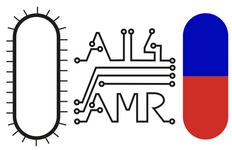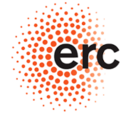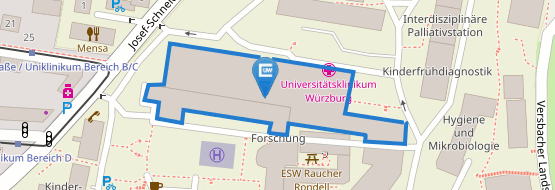Zimmer Group/ Maschinelle Biophotonik
>>> Now hiring postdocs: see "Jobs" below <<<
Biomedical discoveries are often enabled by technological advances originating from other fields, such as physics, engineering or computer science.
The Machine Biophotonics lab (Maschinelle Biophotonik in German), created in 2024, aims to combine expertise from physics, AI, engineering, and biology within the same lab to address important biomedical questions, with a focus on drug discovery. More specifically, we develop methods based on high-throughput and/or high-resolution microscopy, automation, and machine learning for phenotypic drug screening. We work in close collaboration with our sister lab at the Pasteur Institute, the closely associated Spahn group, and several other international teams.
See "Research interests" for our main current research interests and "Recent and prior research" for an overview of our past (and in some cases still active) work.
Our current research interests comprise the following aims:
-
Predicting antibiotic drug mechanisms by imaging and AI
Antimicrobial resistance (AMR) is associated to about 5 million deaths per year, calling for the urgent development of antimicrobials with novel modes of action (MoA). Traditional antibiotic drug discovery methods based on growth inhibition screens are failing to address this need at the required pace, thus innovative approaches are required. We seek to accelerate antibiotic drug discovery by developing a pipeline to determine the MoA of candidate compounds from images of bacteria exposed to genetic and chemical perturbations. Our analyses already show that the MoA of known antibiotics can be recognized from images only (see Fig. 1 and Krentzel et al. biorxiv 2025 in revision for Nat Comm).
Figure 1: Predicting antibiotic drug mechanisms from images only. A neural network is used to predict the antibiotic used to treat bacteria based on high-throughput microscopy images. This allows to recognize the mechanism of action (MoA) with near-perfect accuracy. Adapted from Krentzel et al. biorxiv 2025.
This effort is part of AI4AMR, a collaboration with the teams of Ivo Boneca (Institut Pasteur, Paris) and Mark Brönstrup (Helmholtz Institute, Braunschweig) supported by an ERC Synergy grant. In this project, we will study at least 7 bacterial species including major pathogens, over 80,000 mutants and nearly 30,000 drug treatments, using high-throughput imaging and metabolomics workflows. By analyzing this data set with AI methods, we hope to accelerate the discovery of antibiotics with truly novel MoA and prepare for the advent of a new pandemic bacterial pathogen (pathogen X). In our lab, this project will leverage high-throughput and super-resolution microscopy, genome editing, microbiological experiments and deep learning-based data analysis.

-
Generative AI to find novel antibiotics
Existing drugs, including antibiotics, occupy only a tiny fraction of the astronomically large chemical space of small molecules . Neither experimental drug screening nor traditional in silico screens can systematically analyze such large spaces. We will therefore employ generative AI methods to guide the exploration of this chemical space towards new compounds with desirable properties, e.g. against bacterial growth. These compounds will then be synthesized, studied by imaging and other techniques to experimentally validate them and determine their MoA, in close connection with AI4AMR.
-
Accelerating clinical diagnosis of bacterial infections
Sepsis is a potentially life-threatening condition that requires rapid identification of the causal pathogens to initiate targeted antibiotic therapy. We plan to explore the potential of deep learning to improve and/or speed up the diagnosis of bacterial infections from images of blood cultures. Once validated, we aim to integrate this technology into real-world clinical workflows to enable faster and more accessible bacterial diagnostics, particularly in resource-limited settings. This project is in collaboration with the teams of Christoph Schoen and Christoph Spahn and will benefit from their expertise in clinical diagnosis and microbiology.
Figure 2: Towards deep learning-based microbiological diagnosis. Proposed workflow: Blood samples from sepsis patients are cultured in incubators (not shown) for 1-3 days. Gram-stained slides from the blood cultures are then imaged by microscopy. A dedicated neural network will analyze the images to provide actionable information such as the bacterial species, informing clinical decisions including the choice of antibiotic treatment.
Additional areas of interest are:
-
X-AI for biology: We are interested in developing explainable AI (X-AI) methods that can yield biologically meaningful interpretations of what "black-box" deep learning models have learned from microsocpy images or other biological data sets.
-
Spatial transcriptomics in high-throughput imaging: We are interested in developing multiplexed RNA-FISH based methods to characterize gene expression at the level of single cells in the context of high-throughput phenotypic screens
-
Computational imaging for phenotypic screening: We are interested in developing methods based on optics and deep learning to alleviate some of the main bottlenecks of traditional microscopy in spatial, temporal and spectral resolution in order to improve either the throughput or information content of image-based cellular phenotyping
We are open to exploring additional related directions with coworkers or collaborators as we are growing the team.
Prior to the creation of the Machine Biophotonics lab in 2024, our activity (at the Pasteur Institute in Paris) has focused on the following main areas:
-
Super-resolution microscopy: we have developed experimental and computational methods for single molecule microscopy, a technique that can characterize biological structures at near molecular resolution 1–4. We have applied these methods to outstanding questions in cell biology and microbiology, for example to better understand the ultrastructure of intermediate filaments5 or how HIV infects host cells6–8.
Figure 1: Single molecule localization microscopy in 2D and 3D. From left to right: widefield image of microtubules; corresponding single molecule image; reconstructed super-resolution image; image of single molecules imaged with ZOLA-3D, an optical system containing a deformable mirror, creating z-dependent distortions; reconstructed 3D super-resolution image of mitochondria (color respresents depth). See refs. 1 and 2.
-
Chromatin biophysics: we have developed computer simulations based on polymer physics to predict the 3D organization and dynamics of eukaryotic genomes9–12. In combination with super-resolution or live cell microscopy, we have used these models to quantitatively understand the biophysical principles of genome folding9–15.
Figure 2: Polymer simulations of dynamic 3D chromatin organization. From left to right: snapshot of a dynamic 3D polymer simulation of chromosomes in the yeast nucleus; predicted genome-wide contact frequency matrix; experimental contact frequency matrix measured by Hi-C; a simulated human chromosome without loops; the same chromosome simulated with 25 loops per Megabase. See refs. 9,10, 11, 14.
-
Deep learning for biology: since 2015, we have embraced deep learning as a powerful means of extracting biological information from unstructured biological data, or of improving limitations of current imaging techniques. For example, we have adapted deep learning methods to accelerate super-resolution microscopy16,17 and to diagnose heart anomalies in mice18. Recently, we also used large language models to extract epidemilogical information from free text data19.
Figure 3: Deep learning for biomedical imaging and epidemiology. Left: a deep learning method (ANNA-PALM) transforms a sparse, rapidly acquired single molecule localization microscopy image of tubulin into a dense super-resolution image of microtubules, thereby accelerating super-resolution imaging by ~100 x. Adapted from ref. 16. Middle: a 3D convolutional neural network was trained to diagnose congenital heart disease in mice. Adapted from ref. 18. Right: a large language model automatically extracts circumstances of SARS-Cov-2 transmission from free text of an online survey. From ref. 19.
Much of our work has led to the release of new computational tools and/or data sets that we freely share with the community2–4,10-11,16–18,20,21.
References:
- Lelek, M. et al. Single-molecule localization microscopy. Nat. Rev. Methods Primer 1, 1–27 (2021).
- Aristov, A., Lelandais, B., Rensen, E. & Zimmer, C. ZOLA-3D allows flexible 3D localization microscopy over an adjustable axial range. Nat. Commun. 9, 2409 (2018).
- Henriques, R. et al. QuickPALM: 3D real-time photoactivation nanoscopy image processing in ImageJ. Nat. Methods 7, 339–340 (2010).
- Mueller, F. et al. FISH-quant: automatic counting of transcripts in 3D FISH images. Nat. Methods 10, 277–8 (2013).
- Nunes Vicente, F. et al. Molecular organization and mechanics of single vimentin filaments revealed by super-resolution imaging. Sci. Adv. 8, eabm2696 (2022).
- Lelek, M. et al. Superresolution imaging of HIV in infected cells with FlAsH-PALM. Proc. Natl. Acad. Sci. U. S. A. 109, 8564–9 (2012).
- Lelek, M. et al. Chromatin organization at the nuclear pore favours HIV replication. Nat. Commun. 6, 6483 (2015).
- Rensen, E. et al. Clustering and reverse transcription of HIV‐1 genomes in nuclear niches of macrophages. EMBO J. 40, (2021).
- Wong, H. et al. A Predictive Computational Model of the Dynamic 3D Interphase Yeast Nucleus. Curr. Biol. CB 22, 1881–90 (2012).
- Arbona, J.-M., Herbert, S., Fabre, E. & Zimmer, C. Inferring the physical properties of yeast chromatin through Bayesian analysis of whole nucleus simulations. Genome Biol. 18, 81 (2017).
- Sabaté, T., Lelandais, B., Bertrand, E. & Zimmer, C. Polymer simulations guide the detection and quantification of chromatin loop extrusion by imaging. Nucleic Acids Res. 51, 2614–2632 (2023).
- Parmar, J. J., Woringer, M. & Zimmer, C. How the Genome Folds: The Biophysics of Four-Dimensional Chromatin Organization. Annu. Rev. Biophys. 48, 231–253 (2019).
- Herbert, S. et al. Chromatin stiffening underlies enhanced locus mobility after DNA damage in budding yeast. EMBO J. e201695842 (2017) doi:10.15252/embj.201695842.
- Hao, X. et al. Super-resolution visualization and modeling of human chromosomal regions reveals cohesin-dependent loop structures. Genome Biol. 22, 150 (2021).
- Sabaté, T. et al. Universal dynamics of cohesin-mediated loop extrusion. 2024.08.09.605990 Preprint at doi.org/10.1101/2024.08.09.605990 (2024).
- Ouyang, W., Aristov, A., Lelek, M., Hao, X. & Zimmer, C. Deep learning massively accelerates super-resolution localization microscopy. Nat. Biotechnol. 36, 460–468 (2018).
- Ouyang, W. et al. ShareLoc — an open platform for sharing localization microscopy data. Nat. Methods 19, 1331–1333 (2022).
- Nguyen, H. et al. Deep learning-based detection of murine congenital heart defects from µCT scans. 2024.04.06.588383 Preprint at doi.org/10.1101/2024.04.06.588383 (2024).
- Bizel-Bizellot, G. et al. Extracting circumstances of Covid-19 transmission from free text with large language models. Nat. Commun. 16, 5836 (2025).
- Ouyang, W., Mueller, F., Hjelmare, M., Lundberg, E. & Zimmer, C. ImJoy: an open-source computational platform for the deep learning era. Nat. Methods 16, 1199–1200 (2019).
- Berger, A. B. et al. High-resolution statistical mapping reveals gene territories in live yeast. Nat. Methods 5, 1031–1037 (2008).
- Krentzel, D., Shorte, S. L. & Zimmer, C. Deep learning in image-based phenotypic drug discovery. Trends Cell Biol. 33, 538–554 (2023).
- Krentzel, D. et al. Deep learning recognises antibiotic modes of action from brightfield images. bioRxiv 2025–03 (2025).
-
July 2025: We are happy to welcome Shoma Kataoka as our lab's first postdoctoral researcher
-
March 2025: We are happy to be officially a member of the Center of Artificial Intelligence and Data Science (CAIDAS)
-
November 2024: ERC Synergy grant: We are very grateful for the EU's support to our project (AI4AMR) on accelerating antibiotic drug discovery, together with Ivo Gomperts Boneca and Mark Broenstrup. See the press release.

Preprints (selected):
-
Deep learning recognises antibiotic modes of action from brightfield images. Daniel Krentzel, Kelvin Kho, Julienne Petit, Nassim Mahtal, Jeanne Chiaravalli, Spencer L. Shorte, Anne Marie Wehenkel, Ivo G. Boneca* and Christophe Zimmer*. Biorxiv (2025). https://doi.org/10.1101/2025.03.30.645928. in revision for Nature Communications.
-
Universal dynamics of cohesin-mediated loop extrusion. Thomas Sabaté, Benoît Lelandais, Marie-Cécile Robert, Michael Szalay, Jean-Yves Tinevez, Edouard Bertrand, Christophe Zimmer. Biorxiv (2024). https://doi.org/10.1101/2024.08.09.605990. accepted for publication in Nature Genetics.
-
Deep learning-based detection of murine congenital heart defects from µCT scans. Hoa Nguyen, Audrey Desgrange, Amaia Ochandorena-Saa, Vanessa Benhamo, Sigolène M Meilhac, Christophe Zimmer. Biorxiv (2024). https://doi.org/10.1101/2024.04.06.588383. accepted for publication in Communications Biology.
Recent publications (selected) :
-
Extracting circumstances of Covid-19 transmission from free text with large language models. Gaston Bizel-Bizellot, Simon Galmiche, Benoît Lelandais, Tiffany Charmet, Laurent Coudeville, Arnaud Fontanet* & Christophe Zimmer*. Nature Communications. 16: 5836 (2025). https://doi.org/10.1038/s41467-025-60762-w
-
Deep learning in image-based phenotypic drug discovery. Daniel Krentzel*, Spencer S. Shorte, Christophe Zimmer*. Trends in Cell Biology, 2023. https://doi.org/10.1016/j.tcb.2022.11.011
-
Polymer simulations guide the detection and quantification of chromatin loop extrusion by imaging. Thomas Sabaté, Benoît Lelandais, Edouard Bertrand, Christophe Zimmer. Nucleic Acids Research. 2023, gkad034, https://doi.org/10.1093/nar/gkad034
-
ShareLoc-an open platform for sharing localization microscopy data. Wei Ouyang#*, Jiachuan Bai#, Manish Kumar Singh, Christophe Leterrier, Paul Barthelemy, Samuel F.H. Barnett, Teresa Klein, Markus Sauer, Pakorn Kanchanawong, Nicolas Bourg, Mickael M. Cohen, Benoît Lelandais, Christophe Zimmer*. Nature Methods. 2022. https://doi.org/10.1038/s41592-022-01659-0
-
Sensitive visualization of SARS-CoV-2 RNA with CoronaFISH. E Rensen, S Pietropaoli, F Mueller, C Weber, S Souquere, S Sommer, P Isnard, M Rabant, J-B Gibier, F Terzi, E Simon-Loriere, M-A Rameix-Welti, G Pierron, G Barba-Spaeth, C Zimmer. Life Science Alliance. 2022 Jan 7;5(4):e202101124
-
Single-molecule localization microscopy. M Lelek, M Gyparaki, G Beliu, F Schueder, J Griffié, S Manley, R Jungmann, M Sauer, M Lakadamyali, and C Zimmer. Nature Reviews Methods Primers, 1:39 (2021).
-
Super-resolution visualization and modeling of human chromosomal regions reveals cohesin-dependent loop structures. X Hao, J Parmar, B Lelandais, A Aristov, W Ouyang, C Weber, C Zimmer. Genome Biology, 22:150 (2021). https://doi.org/10.1186/s13059-021-02343-w
-
Clustering and reverse transcription of HIV‐1 genomes in nuclear niches of macrophages. E Rensen, F Mueller*, V Scoca, J J Parmar, P Souque, C Zimmer*, F Di Nunzio*. EMBO J, 40:e105247 (2021).
-
ImJoy: an open-source computational platform for the deep learning era. W. Ouyang, F. Mueller, M. Hjelmare, E. Lundberg, C. Zimmer. Nature Methods, 16, 1199–1200 (2019).
-
ZOLA-3D allows flexible 3D localization microscopy over an adjustable axial range. A. Aristov, B. Lelandais, E. Rensen, C. Zimmer. Nature Communications, 8:2409 (2018). doi: 10.1038/s41467-018-04709-4
-
Deep learning massively accelerates super-resolution localization microscopy. W. Ouyang, A. Aristov, M. Lelek, X. Hao, C. Zimmer. Nature Biotechnology, Apr 16, 2018. 36(5):460-468. doi:10.1038/nbt.4106
Full publication list
For a full list of publications, see Google Scholar
CV of Christophe Zimmer:
-
since 2024: W3 Professor, Rudolf Virchow Center, University of Würzburg, Germany
-
since 2021: Professor, Institut Pasteur, Paris, France
-
2020 – 2023: Director of the Computational Biology department, Institut Pasteur, France
-
2015 – 2016: Visiting Scholar, University of California at Berkeley, USA
-
2010 – 2021: Research Director, Institut Pasteur, France
-
2009: Habilitation to direct research (HDR), University Paris 11, France
-
since 2008: Head of Imaging and Modeling Unit, Institut Pasteur
-
2003 – 2007: Staff scientist, Institut Pasteur, Paris, France
-
2000 – 2002: Postdoctoral researcher, Institut Pasteur, Paris, France
-
1998 – 2000: Assistant research geophysicist, Space Physics Group, University of California Los Angeles, USA
-
1997: PhD, Astrophysics and Space Techniques, University Paris 7, France
Mingcheng Fan
Knote Felix
Josef-Schneider-Straße 2
Shoma Kataoka
Til Schipniewski
Josef-Schneider-Str. 2
We are looking for highly motivated coworkers with a solid background in one or more of the following fields (or related fields):
-
AI, computational biology, bioinformatics, computer science, applied mathematics
-
Physics, biophysics, engineering, microscopy, optics
-
Cell biology, microbiology
As of September 2025, we have openings for:
- 5 postdocs
- 2 PhD students and
- 2 to 4 Master students
We expect strong commitment, a good team spirit and fluency in English (written and spoken).
If you are interested in joining our lab, please send the following as a single PDF file to: christophe[dot]zimmer[at]uni-wuerzburg[dot]de with a copy to: inka[dot]robinson[at]uni-wuerzburg[dot]de
-
A cover letter explaining why you would like to join us and have the relevant skills
-
A detailed CV including a publication list and a summary of your past research achievements, if relevant (3 pages max)
-
The names of at least three references, preferably former or current supervisors
-
Copies of transcripts and diplomas
Applications will be reviewed on a rolling basis until the positions are filled.
We gratefully acknowledge generous funding by :
-
the University of Würzburg
-
the Rudolf Virchow Center
-
the Bavarian Distinguished Professorship Programm
-
the EU ERC Synergy program

 .
. 





